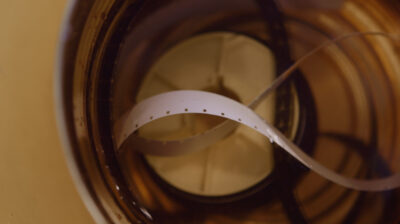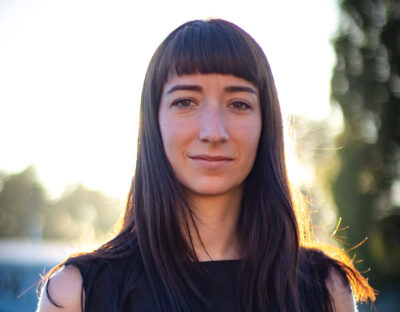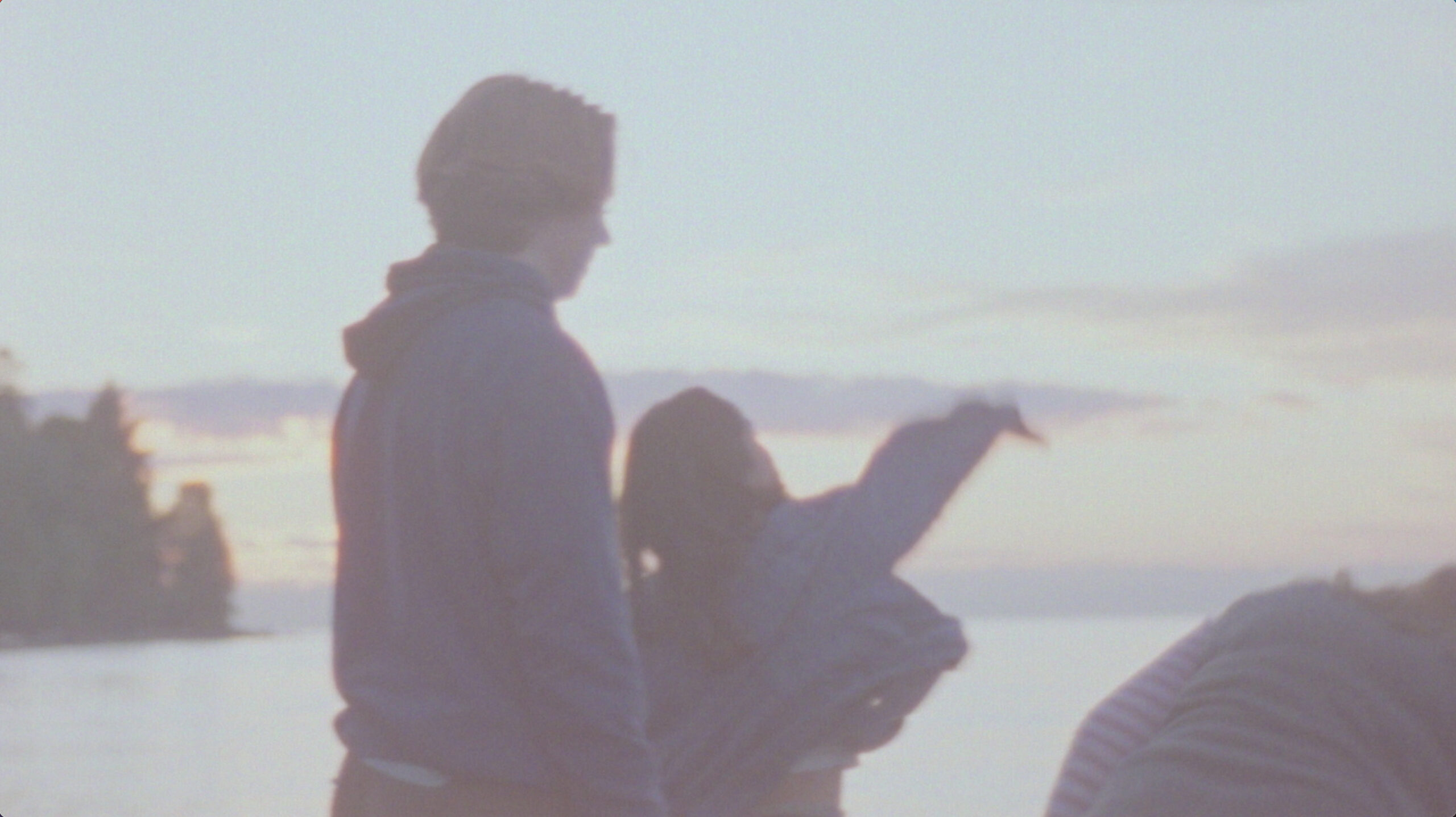BC filmmaker Nisha Platzer’s back home is a beautiful portrait of loss, grief, healing, and community. The documentary will open the Rendezvous with Madness Festival on October 27, kicking off a week of compelling films, art and performances examining mental health and addiction.
Nisha’s brother Josh took his own life in 1999, when he was 15 and Nisha was only 11. In back home, years after leaving her hometown of Vancouver, Nisha returns, seeking treatment for a persistent pain in her feet. But returning to where she and Josh grew up leads her down a path of emotional healing, as she reconnects with her brother’s high school friends and learns more about who Josh was and the pain he was enduring.
Interspersed between scenes of communal healing, Nisha incorporates experimental film techniques. She processes the 16mm and Super8 film by hand, using natural elements from places that Josh found solace in—plants from Cypress Mountain, water from the Pacific Ocean, and even Josh’s ashes. These quieter moments provide respite from the story, with abstract imagery that reflects Josh’s changing brain chemistry and Nisha’s evolving grief.

For Nisha, film and photography were closely intertwined with her own grief and healing. “When I was first learning high school photography as a teenager, I spent so much time in the darkroom and it was around the same time that I was processing the loss of Josh,” she says. “Having him and his favourite places be physically in the material of a film just felt so meaningful for me.”
Back home first began as a photography project in 2016, and morphed into a film over the years. It will now open Rendezvous With Madness, a festival known for curating varied, complex pieces of art that explore mental illness, addiction, and suicide, representing these topics in a safe and welcoming space, and encouraging dialogues to start around them.
This year, the festival features a range of films, including Because We Have Each Other, chronicling the life of a neurodiverse family, Blue Sky White Clouds, following a canoe trip taken by a filmmaker and her grandmother who suffers from dementia, Holler Rat, an epic 6-hour performance from Anya Liftig, and where you are is where I want to be, a visual arts exhibition centring queer and trans voices and disability justice.
“I feel really honoured and delighted that Rendezvous with Madness asked us to be the opening night film. It feels really meaningful that they saw within the layers and within the complexities, the truths that I see, that I think so many people share,” Nisha says. “Something that was really clear for me with this film was that I wasn’t getting on a soapbox to say this is how we prevent teen suicide. I felt like I didn’t have those answers. And I don’t know if anybody does.”
While there are no easy answers, Nisha agrees that finding spaces for conversations like these about mental health and suicide can save lives. “It’s so delicate to talk about teen suicide. It’s a terrifying thing to think about. And yet, I think there needs to be some kind of space for people, especially youth, to talk about their mental illness. There needs to be some room for conversation where you’re allowed to express darkness.”

Back home doesn’t shy away from the darkness Josh faced, but it is also a beautiful portrait of who Josh was. His floppy red hair. How he was always writing in his journal. The strong bonds he had with his friends. The heart of the film lies in the many beautiful scenes of Josh’s friends reconnecting all these years later, inviting Nisha into their circle, sharing grief, but also memories, laughter and ultimately, healing.
“Healing in community is something that I learned was so necessary. It’s easy to isolate when we’re not feeling well. There’s still so much shame in having negative feelings, having sadness, having grief. But it’s so much healthier and so much easier to heal in a group with loved ones in community.”
This healing has come full circle for Nisha at screenings of back home, first at the hometown premiere in Vancouver, and then experiencing the unexpected joy of seeing complete strangers in new cities connect to the story.
“It just goes to show that we are all so connected. Even though our stories are unique, there’s still an element of humanity that unites us— whether that’s grief and loss or love. I’ve been so touched to meet people after screenings who share their stories with me and who connect with Josh who see themselves in the film, and really relate to what he went through or relate to losing someone.”
Whether it’s the lingering pain of loss or the transformative power of healing, the emotional journey of back home will resonate with many.
Back home will open the Rendezvous With Madness Film Festival on October 27 with a screening at the CAMH auditorium. More info here.



 Follow Us On Instagram
Follow Us On Instagram
